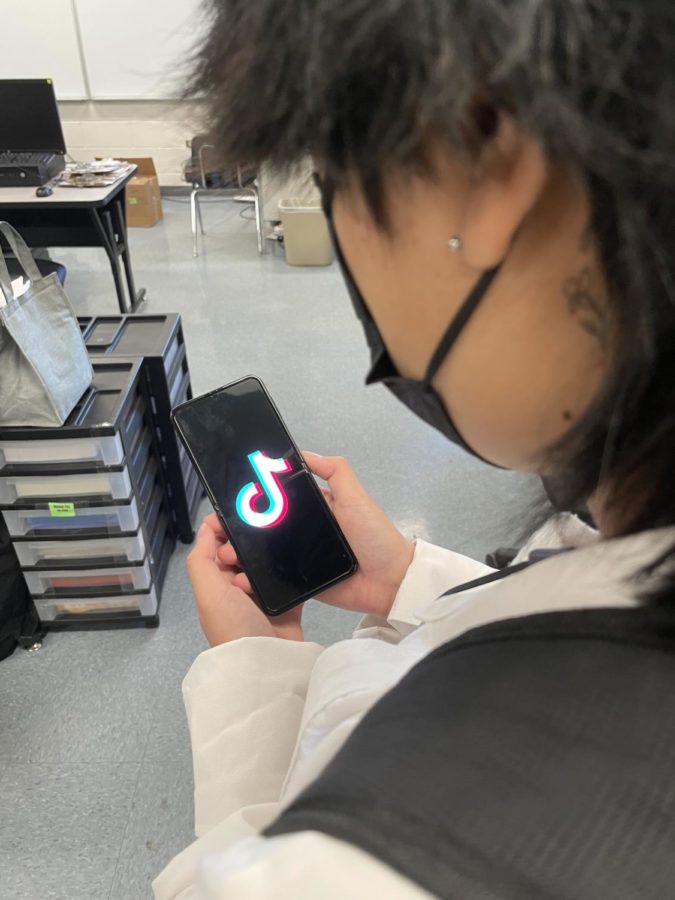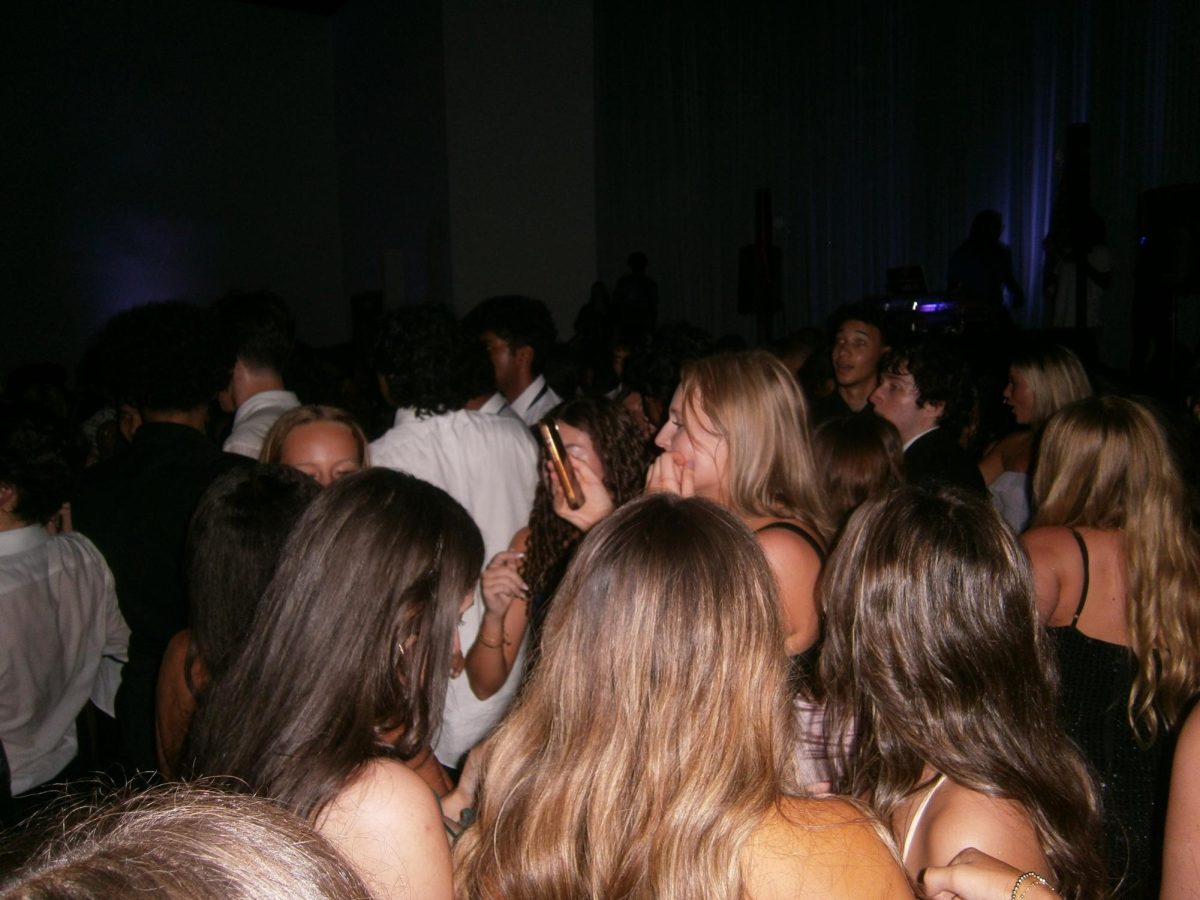Mental Illness Isn’t Trendy
Children on Tiktok have adopted a new trend: faking mental illness.
Photo Ingalls Witte
Multimedia Editor Pim Kruthun scrolls through TikTok.
January 15, 2022
Over the past couple of months, a new and troubling trend has been on the rise on TikTok: faking serious mental illnesses. Kids on the platform have been pretending to have serious mental disorders-creating new accounts just to showcase them all in the name of Tiktok popularity. I find it completely appalling so many children find this behavior acceptable, and their actions encourage others to adopt these “disorders”.
A rising number of young users on the app have suddenly developed severe mental disorders in the past few months, such as Tourettes, Dissociative Identity Disorder (DID), Autism and ADHD. Kids on the app flaunt their “disorders” to followers, all while remaining undiagnosed and uninterested in what professionals have to say.
One of the most notable examples of this ignorant trend is the faking of DID, a serious and extremely rare disorder caused by years of immense trauma and suffering. In order to protect the brain from traumatic and triggering events, the mind splits off and forms alters, which are alternate personalities meant to aid in coping and functioning in day-to-day life.
Tiktok users have taken this disorder and are now using it as a ploy to pretend to be their favorite characters from movies, TV shows, video games and other popular media. While there’s no shame in a little bit of make-believe, people who claim to have this and other disorders and continue to post about it assist in stigmatizing mental illness, as well as fostering an audience of young and impressionable children who believe this is okay.
The popularization of faking mental disorders also has adverse effects on those who actually suffer from it. Now more than ever doctors are reluctant to diagnose children who exhibit symptoms, and are dismissive of people who actually need treatment due to the “trendiness” of having and faking disorders. Following the pandemic, an influx of teenage girls went to doctors after suddenly exhibiting tics, a symptom commonly associated with Tourettes. After discussing with medical professionals around the world, these new cases all shared similar tics, something not common in people with Tourettes. These tics that were being displayed could all be connected to one thing: Tiktok. These tics seen in doctors’ offices resembled popular tics seen all around the app.
I have always been a strong advocate for those who suffer from mental illness, and in order to support those people, it also means recognizing the glamorization of mental disorders by those who don’t have it and holding those individuals accountable for their actions. Mental illness never has and never will be trendy, so stop using it as an accessory to garner internet popularity.











